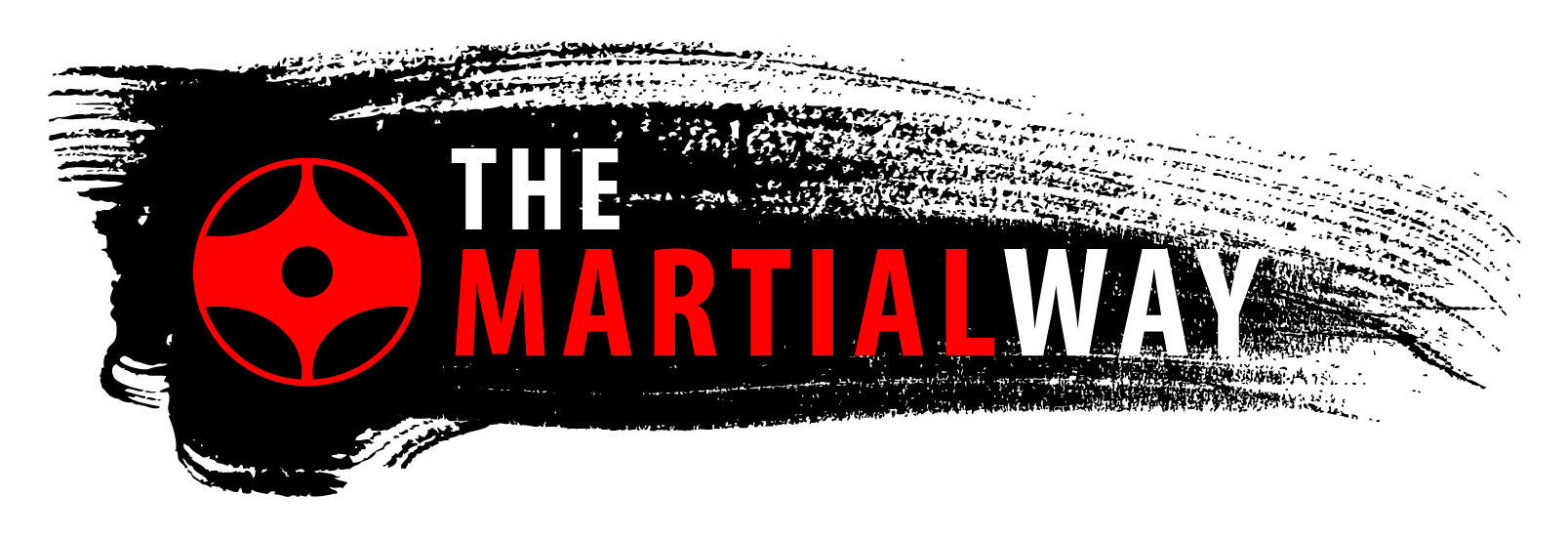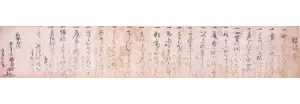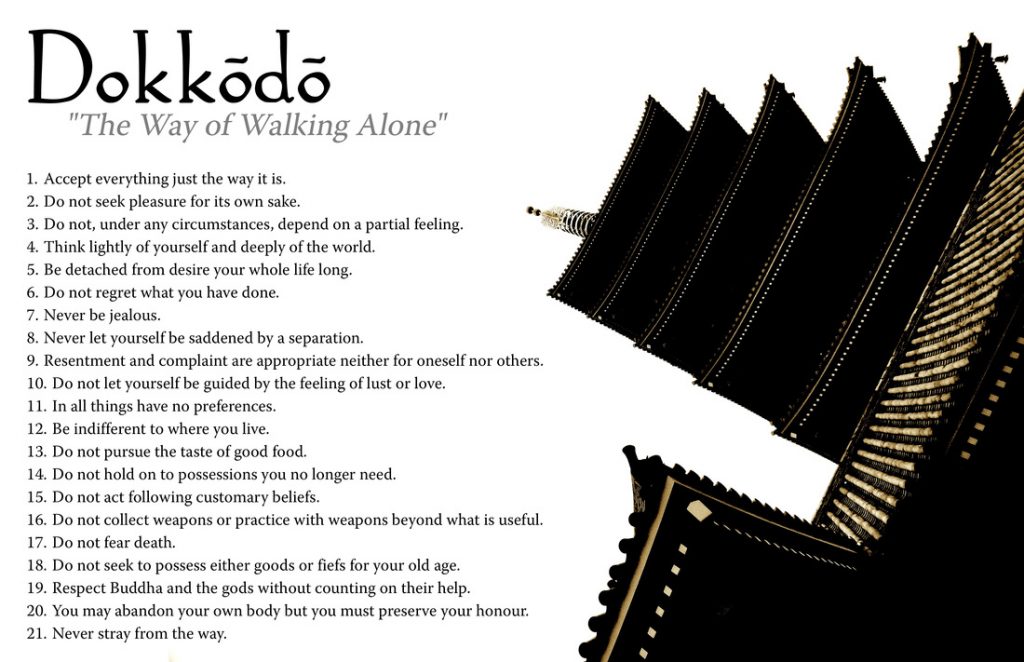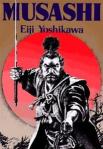As anyone in Kyokushin knows, Sosai Mas Ōyama was heavily influenced by the great swordsman Miyamoto Musashi, including going into isolation to hone his martial arts, taking Musha shugyō – Warrior Quest, etc., as did Musashi before him. Sosai was noted as saying that Musashi had changed his life completly. An amazing story in own’s right. I find it absolutely incredible what Sosai did and beyond inspiring. 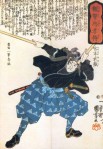
I read the book Musashi, by Eiji Yoshikawa as a teen, and was in awe of the tale. I am now re-reading it much later in life with a different perspective and still in awe.
Besides being famous for his martial skills with two blades (developing the Hyōhō Niten Ichi-ryū or Niten-ryū style of swordsmanship), he was also famous for his very influential writings.
The Go Rin No Sho (Book of Five Rings) and the Dokkōdō being the two most famous. He also wrote the Hyoho Sanju Go (“Thirty-five Instructions on Strategy”), which formed the basis for the later Go Rin No Sho. 
In 1643 he retired to a cave named Reigandō (Spirit Rock Cave) meditating and writing his views on the world, which included The Book of Five Rings. He finished it in the second month of 1645.
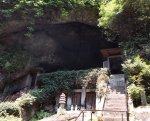 The Dokkōdō (“The Way of Walking Alone”, or “The Way of Self-Reliance”) was written by Musashi in the final few days of his life, for the occasion where he was giving away his possessions in preparation for death. Musashi died of what is believed to be cancer. He died peacefully after finishing the Dokkōdō.
The Dokkōdō (“The Way of Walking Alone”, or “The Way of Self-Reliance”) was written by Musashi in the final few days of his life, for the occasion where he was giving away his possessions in preparation for death. Musashi died of what is believed to be cancer. He died peacefully after finishing the Dokkōdō.
It was given to Terao Magonojo, his most skilled disciple in Niten-Ichi-Ryu. After the Gorin-No-Sho, Dokkōdō is the summary of Musashi’s life, his will and his philosophy. It is 21 precepts on self-discipline to guide future generations.
Here now are the 21 precepts of Dokkōdō. I was going to add my own interpretations, but I believe it is better for one to decipher their own meaning out of them. As then, you can meditate on each and what it means to you personally.
